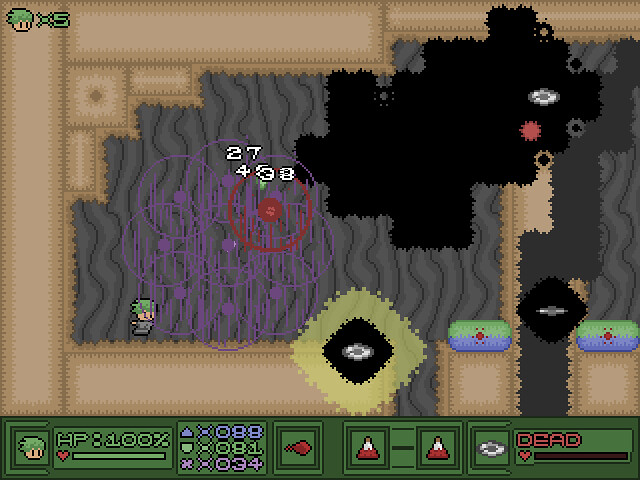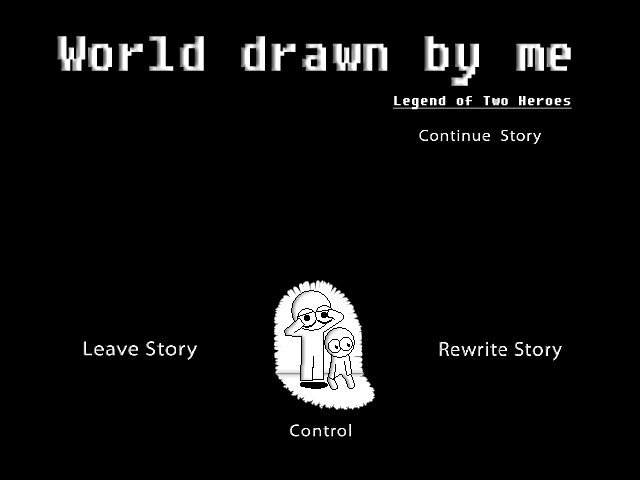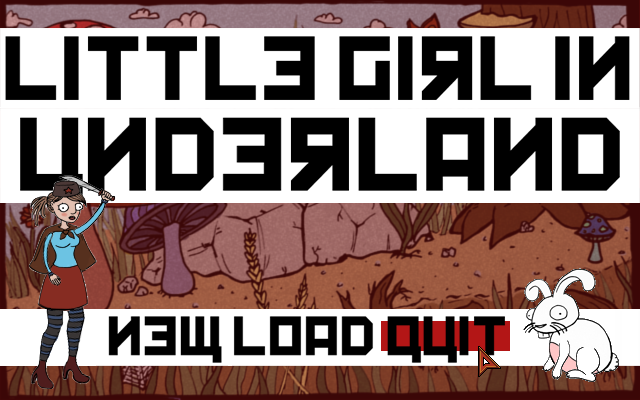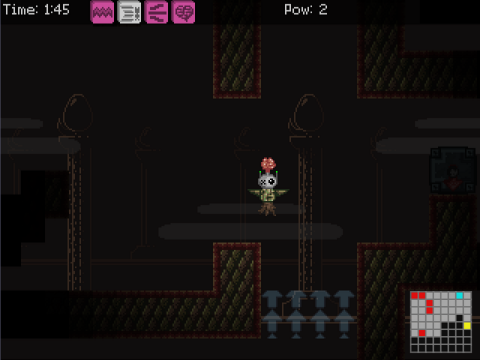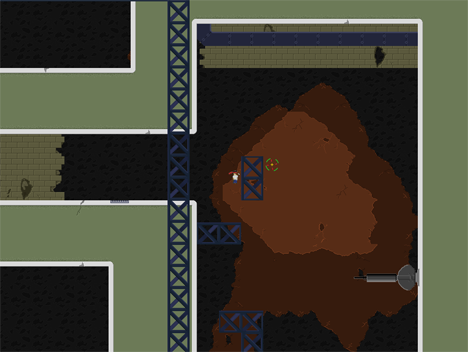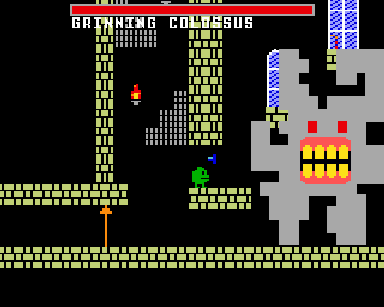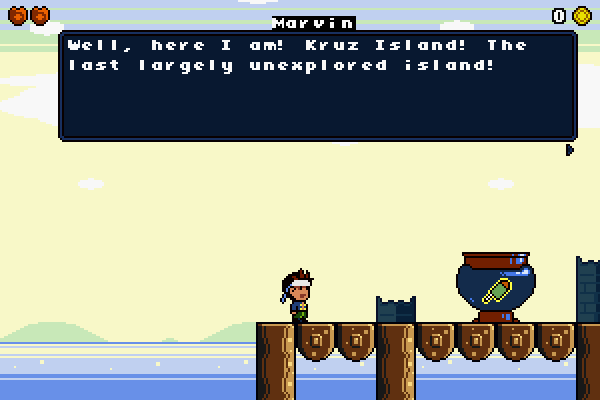
“A journey of a thousand miles starts with a single step.”
- Confuscius
Free will. Choice. The if-else statements that control the program flow that is the human existence — a program that ultimately ends with “return 0;” — a return to naught. To distill the sayings of a character in Hideo Kojima’s Metal Gear Solid 4 — to boil it and extract the pure meaning of the dangerous poison of the Kojima Frog — one can become ten. Ten can become one hundred. But zero? A zero cannot become a one.
Bernie’s Treasure Hunter Man is a wonderful gamepiece in the Octacamo-ian guise of a petty game about treasure hunter. The main character, Marvin, or shall I say, MArviN (Note the capitalized letters for they reveal my gambit), must embark on a journey of a thousand miles — or at least, a couple thousand kilobytes — a journey full of peril, adventure, and above all, treasures. The role of treasure in this game plays the same role as it does in Passage (an oft cited game in academic gamepiece circles) — mere distractions from our inevitable returning of 0.
Treasure Hunter Man starts with the birth of MArviN — his descent from the heavens and crash landing on an alien world — Port Kruz. Here he is given a binary choice, two roads diverging in a yellow wood; the leftward path — a path off a cliff; and a rightward path; the path of progress.
I’ll not beat around the bush; I am a thinker; an iconoclast; I oppose the flow of the mainstream and choose to swim upriver to its source — the origin of meaning — the spring of the free thought. As such, I made a choice that reflected my attitudes — a destructive choice, to be sure — one that lead me off the ledge of reason and into the chasm of the unknown.
I went left.
The screen did not scroll — there was no hidden room at the foot of that pit, just the absense of level data — NULL, personified.
But the Game was not Over.
I continued to fall. Surely such an obvious folly could not have simply been an oversight on Bernie’s part. No. This was purposeful. There was intent behind this action. I sat in wait, staring at the screen, for a minute, then for ten minutes (I did not have the patience, nor stamina, to wait 100 minutes, sadly), waiting for a glint of change, but there was none. Two roads diverged in the a yellow wood (the wood flooring of the first level, is in fact, brown) — and I chose the one less travelled. And contrary to Frost’s depiction of this scenario, it did not make a difference in the world — the world continued — unchanged — unmoved. It did not even bat its metaphorical eye.
Now you are probably clamoring “How dare you write dismiss an entire game on behalf of a single bug?”
Bug? There are no “Bugs”, in life. The “Bugs” that inhabit your garden, for example, are not some oversight by our Holy Programmer — they are intentional and integral to the program of Life (not to be mistaken with the famous Game of Life, which is a shoddy portrayal at best). This gamepiece is a statement on choice, the permanence of human folly. There is no Game Over; no Continue. You cannot Save nor Load. The journey of life starts with a single step, but know this — the wrong first step will cut your journey quite short indeed!
Treasure Hunter Man (Direct Link) by Bernie, 4 MB
